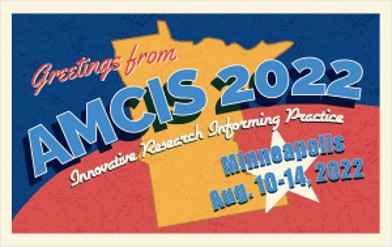SIG SEC - Information Security and Privacy
Loading...
Paper Type
Complete
Paper Number
1275
Description
Deepfakes, algorithms that use Machine Learning (ML) to generate fake yet realistic content, represent one of the premier security challenges in the 21st century. Deepfakes are not limited to just videos, as deepfake audio is a fast-growing field with an enormous number of applications. Recently, multiple Convolutional Neural Network (CNN) based techniques have been developed that generate realistic results that are difficult to distinguish from actual speech. In this work, we extracted audio features from real and synthesized audio files and determined that Mel-Frequency Cepstral Coefficients (MFCCs) in synthesized audio show a significant difference from the MFCCs in real audio. Using Deep Neural Networks (DNNs), experiments were conducted to train classifiers to detect synthesized audio in different datasets, with highly successful results.
Recommended Citation
Khan, Madeeha B.; Goel, Sanjay; Katar Anandan, Jaswant; Zhao, Jersey; and Naik, Ramavath Rakesh, "Deepfake Audio Detection" (2022). AMCIS 2022 Proceedings. 23.
https://aisel.aisnet.org/amcis2022/sig_sec/sig_sec/23
Deepfake Audio Detection
Deepfakes, algorithms that use Machine Learning (ML) to generate fake yet realistic content, represent one of the premier security challenges in the 21st century. Deepfakes are not limited to just videos, as deepfake audio is a fast-growing field with an enormous number of applications. Recently, multiple Convolutional Neural Network (CNN) based techniques have been developed that generate realistic results that are difficult to distinguish from actual speech. In this work, we extracted audio features from real and synthesized audio files and determined that Mel-Frequency Cepstral Coefficients (MFCCs) in synthesized audio show a significant difference from the MFCCs in real audio. Using Deep Neural Networks (DNNs), experiments were conducted to train classifiers to detect synthesized audio in different datasets, with highly successful results.
When commenting on articles, please be friendly, welcoming, respectful and abide by the AIS eLibrary Discussion Thread Code of Conduct posted here.



Comments
SIG SEC